The animation of characters can be a challenging yet exciting task. With Adobe Character Animator, which is part of the Creative Cloud, you get a powerful tool to bring your self-designed figures to life. In this guide, I will show you step by step how to animate your puppets using the various functions and possibilities that Character Animator offers.
Key Insights
- Selecting the right puppets and their properties is crucial for successful animation.
- Knowledge of audio and mouse inputs can significantly improve the quality of your animation.
- Correctly utilizing the properties and behaviors of your puppet gives you more creativity and control.
Step-by-Step Guide
Preparing Your Puppet for Animation
Before you start animating, you need to make sure that your puppet is correctly selected in the timeline. Click on the puppet you want to animate; it will be highlighted with a red bar.
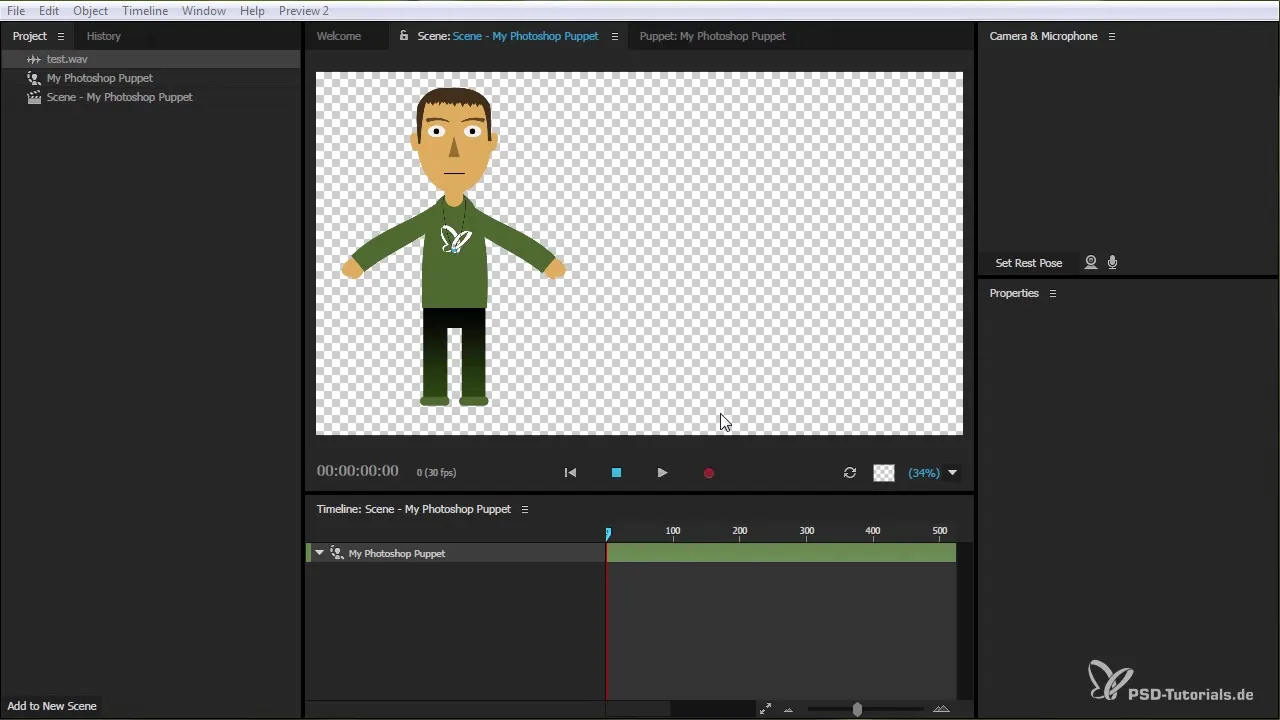
Once you have selected the puppet, you can play with the markers in the lower timeline to change the puppet's properties. Experiment with different scales and movements to get a feel for character control.
Adjusting Puppet Properties
To optimize the animation of your puppet, it is important to adjust the properties in the "Properties". Click on the properties of your puppet to make settings such as bendability and physical behaviors.
For example, you can adjust the chain or arms of your puppet to make it look more realistic. You have the option to simulate wind or other physical effects.
Animation through Facial Tracking and Audio
One of the most powerful features of Character Animator is the ability for facial tracking. Activate the camera and watch your puppet react as you mimic your expressions and movements. This results in realistic facial animation.
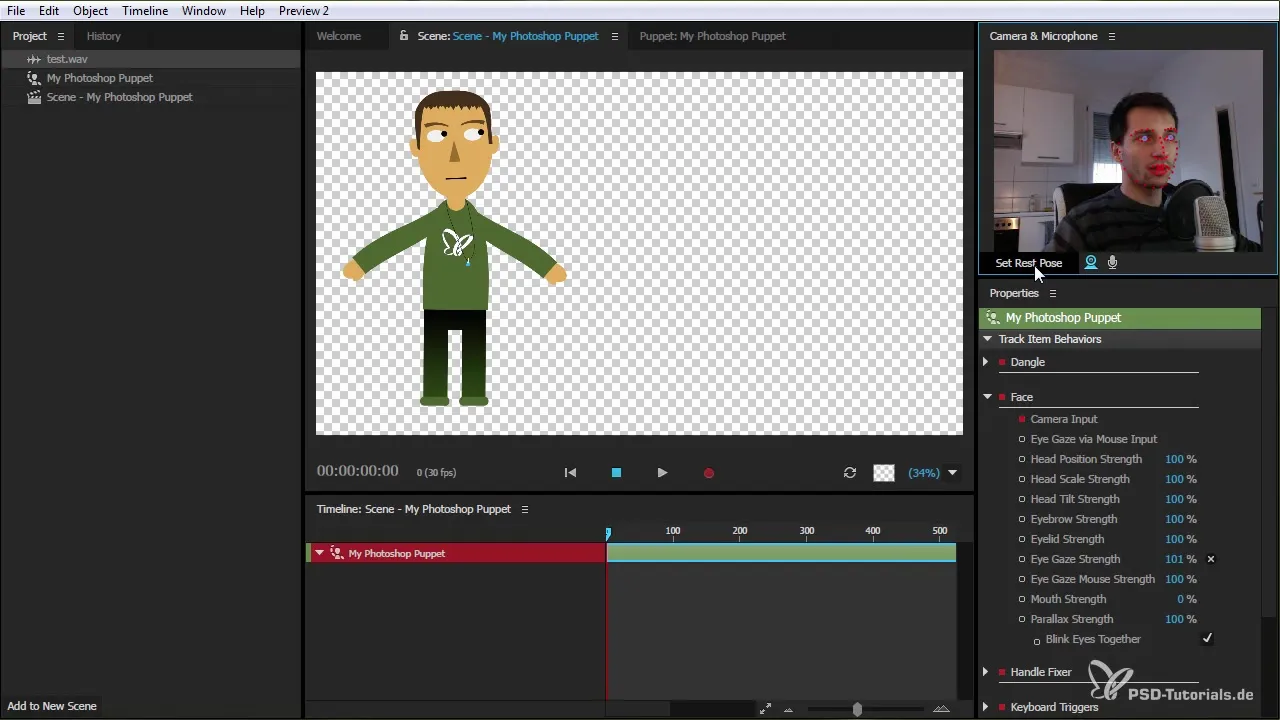
Additionally, you can record audio or use an existing sound file. Lip sync will automatically be created by Character Animator for you, analyzing the audio and synchronizing it with the lip movements of your puppet.
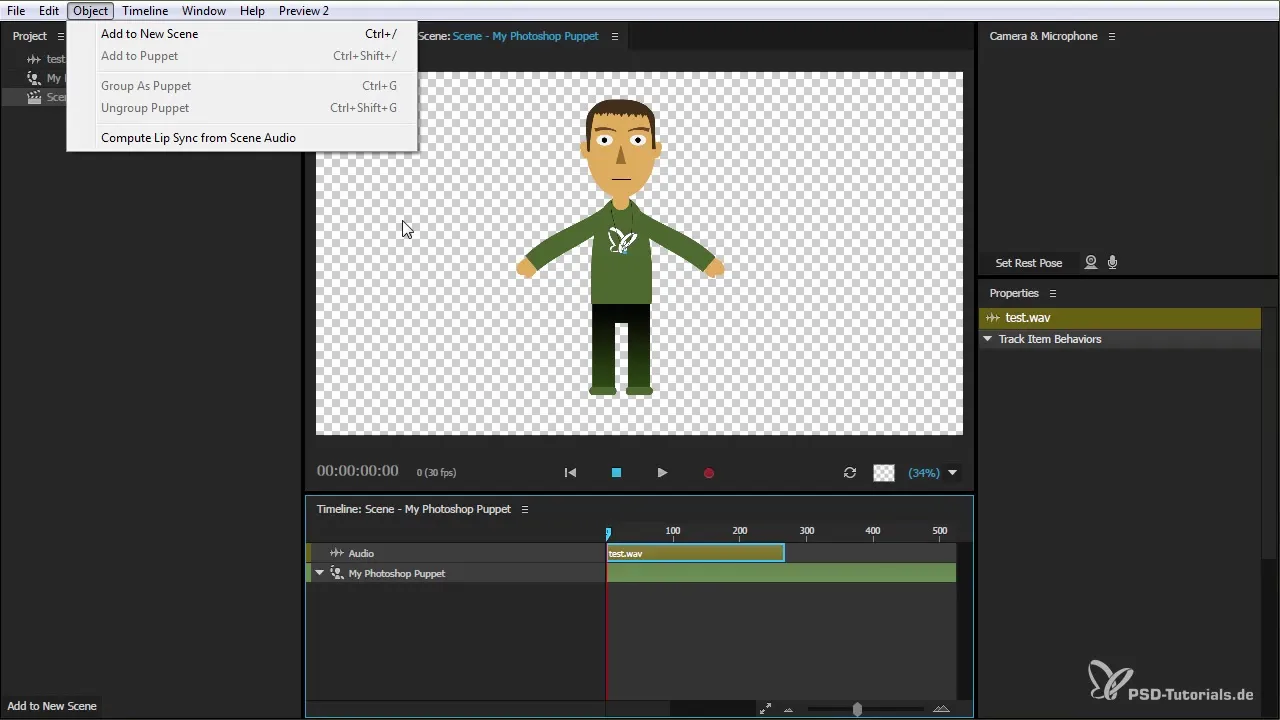
Controlling Gestures with the Mouse
Another helpful tool is the mouse tracker. This allows you to create specific gestures simply by moving the mouse. For example, you can animate your hands to make the movements of your puppet more lively.
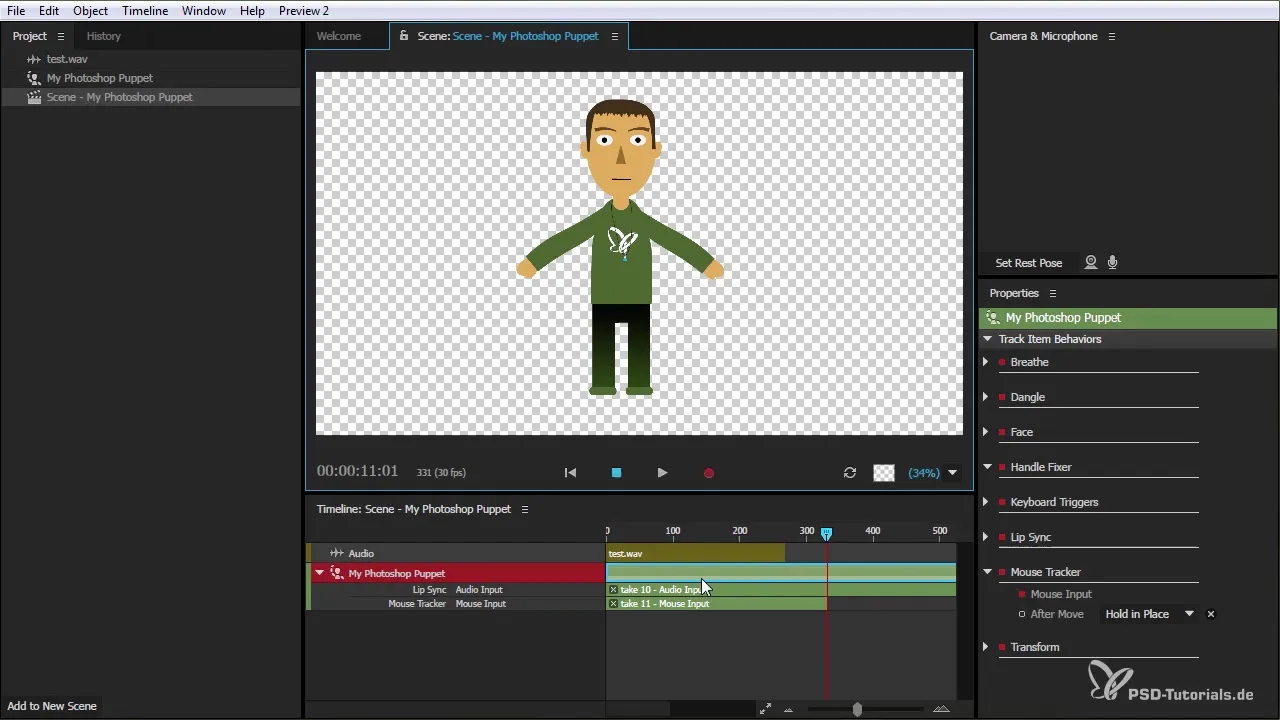
Don't forget that you can also set the return to a resting position to keep your animation as realistic as possible.
Fine-Tuning in the Animation Tool
Return to "Puppet" mode to rectify any mistakes and make fine adjustments. Here you can adjust specific points of the puppet, such as the anchor point's position, which is crucial for movement.
In this mode, you also have the option to set the frame rate and duration of the animation to ensure that everything runs smoothly.
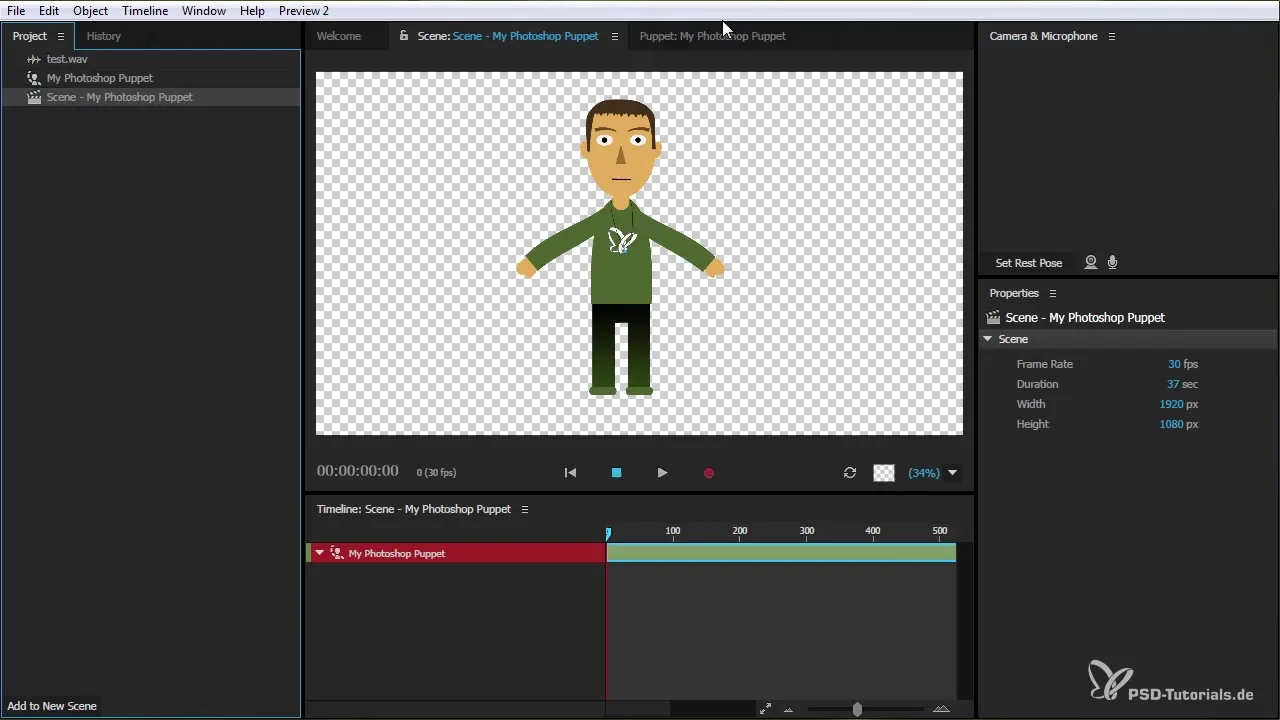
Combining Effects from Various Inputs
Now it gets exciting: you have the opportunity to combine different inputs. You can utilize audio, mouse movements, and facial movements together to create a complex and dynamic animation.
When you bring the actions together, overlaps may occur. Make sure to use the layers in the timeline efficiently to achieve the desired effect.
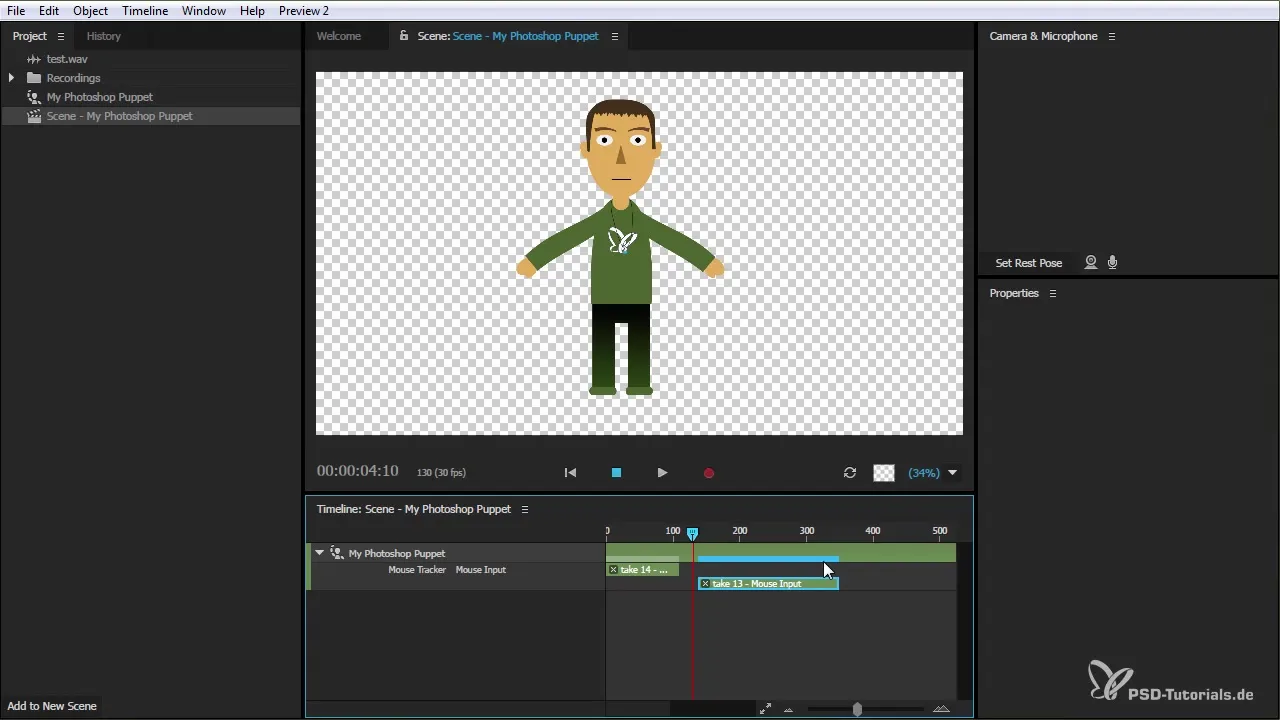
Final Review and Export
Once you are satisfied with the animation, review the overall performance and ensure that all elements fit well together. Often, you will need to make minor adjustments to achieve the perfect animation.
Once everything is to your satisfaction, you can save your work and export it for use in After Effects, to make further adjustments or add new elements.
Summary – Character Animation in Creative Cloud
Animating your puppet with Adobe Character Animator opens up many creative possibilities. By understanding the various tools – from your puppet's properties to audio and mouse inputs, to fine-tuning – you can create impressive animations that bring your character to life.
Frequently Asked Questions
How do I choose the right puppet for animation?Select a puppet that is well-structured and already has the desired properties for animation.
How important is lip sync?Lip sync is crucial for creating the impression of lively, realistic dialogue.
What can I do if my animation appears choppy?Check the frame rate and the motion surfaces in your puppet setup and adjust them if necessary.
What audio formats does Character Animator support?Character Animator supports various audio formats that you can import into your project. The most common are WAV and MP3.
How are mouse and microphone inputs connected?Mouse and microphone inputs can be used simultaneously to achieve different animation effects like gestures and lip sync.


